Crackdown On Stock Market Reporting Shakes China’s Financial Journalists – And Presents A Threat To The World's Markets
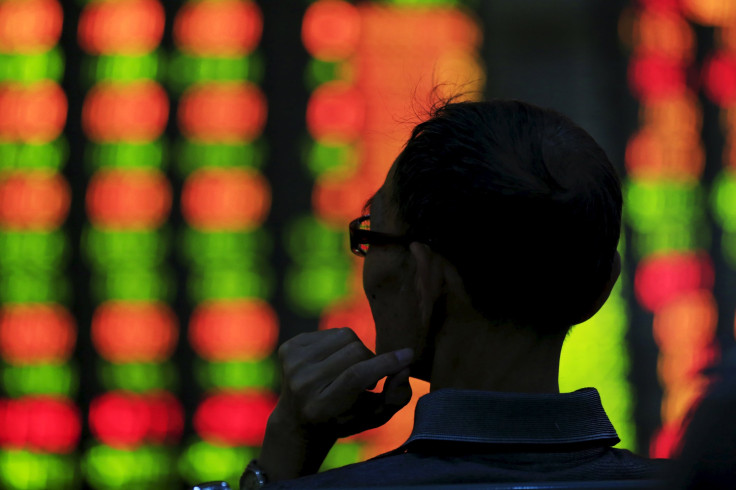
SHANGHAI -- The story that got Wang Xiaolu arrested appears to have checked out on the facts. In July, as shares on China’s stock markets plunged, sowing global panic, the veteran financial writer reported that the authorities were considering pulling back from propping up share prices.
But as China’s government intensifies controls on the media, journalists are increasingly discovering that accuracy provides no defense against the wrath of the people in charge. Wang -- a writer for the respected publication Caijing -- was detained and paraded on national TV, where he confessed to publishing “private information obtained through inappropriate channels”, and apologized for “bringing big losses to the nation and investors.”
Two months later, that spectacle appears to have delivered its intended result, sowing alarm among China’s financial journalists and prompting many to avoid reporting on subjects that had previously been seen as fair game, several writers told the International Business Times.
“This is a big change,” said one young financial journalist, who spoke on condition he not be named lest he jeopardize his job. “In the past we always felt that being a financial journalist was the safest job. If you wrote about legal issues, it could be dangerous, a lot of journalists got arrested, but finance and economy seemed to be relatively safer topics. But this case shows us that writing about this area isn’t safe. It will lead to more self-censorship.”
While journalists landing in trouble for breaching the party line is hardly new in China, Wang’s case has resonated as an indication that that line itself has shifted: Now, even financial and economic news constitute potential danger zones, alongside coverage on human rights and the wielding of Communist Party power. This represents a shift whose ramifications could be felt far beyond China, as anxious investors seek to understand the scope and consequences of the slowdown in the world’s second-largest economy.
'If "privately gathering information" and then adding "subjective judgment" sounds a lot like good journalism,it is.' http://t.co/voFC6XzXfo
— Stefan Geens (@stefangeens) August 31, 2015In the decades since China began embracing market reforms -- constructing stock markets, courting foreign investment, and tying its fortunes to the vagaries of global trade -- a loose understanding took root within the growing ranks of China’s journalists: Stories that challenged the dictates of the ruling Communist Party courted danger, but those digging into the operations of companies and financial markets were generally safe. Such coverage appeared to have the tacit approval of a government that recognized that reliable information was a necessary commodity in an age increasingly influenced by markets.
Among Chinese journalists and market-watchers, the Wang case has been absorbed as a sign that the terms of that understanding have been redrawn, prompting writers and editors to pull back on their coverage of China’s markets. Some suggest that a frightened financial press could undermine the flow and quality of information, just as China’s markets and financial sector are becoming more connected to the outside world.
More broadly, Wang’s public shaming is being taken as another sign among many that the party may be reconsidering its commitments to greater market forces as it grapples with a slowing economy.
China expected to post weakest quarter of economic growth since 2009 financial crisis: http://t.co/grvVMObGfX pic.twitter.com/Agg3ipqwcf
— CNN International (@cnni) October 14, 2015“China still has a serious shortage of good business journalism,” said Lifen Zhang, former editor of the Financial Times website FTChinese.com, and a veteran Chinese media watcher. “And now it’s becoming more politically sensitive. I believe a reduction in scrutiny of markets and economic activities by the business media would weaken China's economic reform and its potential to achieve quality growth and market openness.”
Some Chinese media insiders have speculated that Wang’s detention was the result of a power struggle between government departments. But David Bandurski, of the China Media Project at Hong Kong University, said his arrest appears to have been specifically designed to send a warning to journalists to exercise caution in their coverage of the markets. The fact that Wang confessed to having obtained information through “inappropriate channels”, and to having negatively impacted the market “at such a sensitive time,” shows that his detention was “not about facts, but about sensitivity,” he argues.
“We can be quite certain this is a political move,” Bandurski said, noting that the market actually “rallied for several days” immediately after Wang’s report was published. “If journalists make a mistake, the proper correction comes through openness of information and reporting. Such public confessions are a dark legacy of Maoist China that has made a recent comeback under Xi Jinping. This will hang heavily around the neck of China's financial press.”
It’s no coincidence that the case followed a period when China’s financial media had been “relatively transparent in their reporting of the government’s ham-fisted attempts to prop up the stock market, giving the outside world a negative impression,” added Willy Lam, a specialist on Chinese politics at the Chinese University of Hong Kong. “This is a classic case of shooting the messenger. Perhaps Wang and his colleagues jumped the gun a little bit, they didn’t wait for approval to report the story -- but essentially it was right. By the end of July the authorities did decide not to directly inject money into the stock market. So it was good reporting, they had a scoop.”
Wang’s employer, Caijing magazine – one of China’s first commercially-funded media publications, which led the way in pushing for a more open financial media in the late 1990s – stood by its reporter, issuing a statement that said it would always “support in depth accurate and objective reports,” and, unusually for such a case in China, the original story remains on itswebsite.
But the Chinese authorities, Lam said, weighed down with a triumvirate of economic turmoil -- stock market volatility, foreign alarm at the devaluation of its currency and a slowdown in growth -- are determined to convey an “impression of unity.” The government is intensifying what Lam says has already been a “tougher line on the media” under President Xi Jinping than his immediate predecessors.
On one level, it seems to be working. Wang’s detention has been accompanied by more cautious reporting of the stock markets in the Chinese media. And the government has also issued directives calling for positive reporting on the country’s economy, which has seen sharp falls in exports and imports in recent months.
The result? When China’s stock markets plunged 8.5 percent in a day in late August, the news made headlines around the world – but did not appear on many Chinese front pages. (A revival of 1.5 percent a few days later, however, was headlined by one Shanghai media outlet as a “crazy rise” – prompting some skepticism from readers in its comments section.)
“We know now that we have to be more cautious in reporting the markets,” one experienced Chinese media professional told IBT. “We’ve always had to deal with rules – but it was a shock to see Wang Xiaolu on TV confessing like that.”
Chinese imports slump 18pc as slowdown worries return http://t.co/Z2VAlP516x pic.twitter.com/mqBh0jOffG
— Telegraph News (@TelegraphNews) October 13, 2015And it’s a shock that's not only alarming current professionals, but could also “stop some young people becoming journalists,” said the young financial reporter, who has witnessed many young Chinese media students who are more tempted to go into public relations and marketing than face the pressures of working as a journalist.
A drying up of idealistic young journalists would only add to the Chinese media’s current problems. Even before Wang Xiaolu’s arrest, several other cases had already sent a chill through the profession: two years ago Chen Yongzhou, a reporter from a popular newspaper in southern China appeared on TV confessing to having taken bribes from a company to write negative stories about its rival – and was eventually jailed for a year and ten months. And last year Shen Hao, a well-known journalist seen as a pioneer of financial reporting in China, was arrested for corruption at independent business publication 21st Century Business Herald – he and some 30 other journalists were formally charged in August.
While corruption is acknowledged by journalists to be a problem in sections of China’s financial media, legal specialists also raised concerns about the treatment of those arrested in these cases, and many saw them as designed to warn journalists off bold reporting.
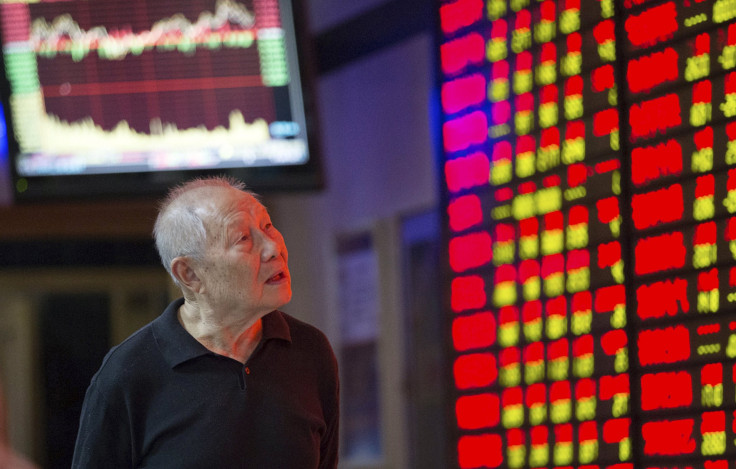
Combined with growing financial pressures, as traditional media have been hit by the increasing challenge of the internet and social media, many experienced journalists have been quitting the profession to go into business or PR, the financial reporter said. These trends, he added, have already damaged the quality of journalism in China’s more market-oriented media. A case in point is the Southern Weekly, the Guangzhou-based newspaper that established the idea of investigative journalism in China, and won national popularity with its exposes of local corruption around the country in the 1990s. Editors were frequently sacked, but somehow the paper always bounced back.
Now, however, the Southern Weekly has been placed under tight control by the local propaganda bureau, following a case two years ago when its staff used social media to reveal that censors had spiked an editorial calling for greater freedom of speech. This resulted in a public protest in support of the paper outside its office – something that greatly alarmed the authorities. As a result of the new controls, “so many of the sharpest journalists have left, and it’s not so influential anymore,” the reporter said. “It’s very sad.”
Equally worrying, he added, is the fact that many other media “don’t have in-depth special features departments anymore. There are just lots of young reporters writing short stories.” He pointed to the huge explosion at a chemical warehouse in the northern city of Tianjin in August, which killed 173 people. While some journalists rushed to the scene, and initially tried to get to the bottom of whether corruption or official negligence were to blame, attention was soon diverted elsewhere.
“There are fewer and fewer people who really want to dig into these kind of stories. Five or ten years ago I believe all media outlets would have stayed in Tianjin [to investigate] for a long time. Even if they’d told us not to, people would have found a way to do it anyway.”
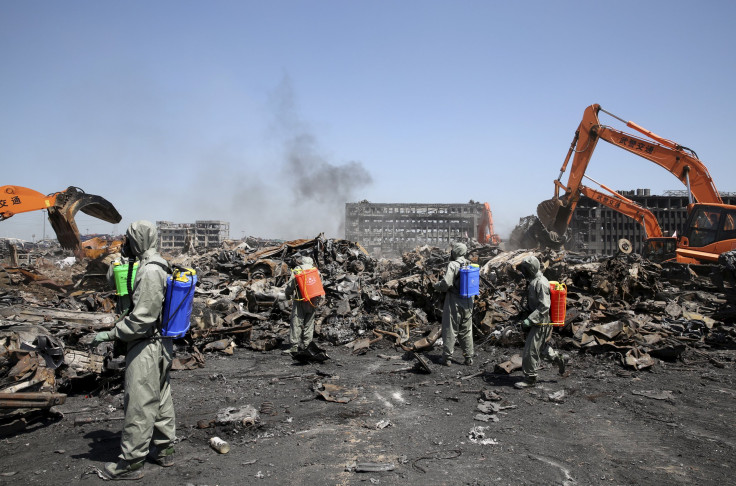
It was striking that when the Belarusian journalist Svetlana Alexievich won the Nobel Prize for Literature this month for her in-depth reportage work, comments from Chinese journalists on social media ranged from hope that her success would encourage Chinese reporters “to have a broader understanding of journalism with more cultural depth”, to the more cynical “China’s investigative journalists are either not published, or they’ve moved over to entertainment or fashion media, or just completely changed their career.”
Yet not everyone has given up. Even in recent weeks the Chinese media has shown that it’s not been completely neutered. It has generally followed the official line on major affairs of state, such as coverage of President Xi Jinping’s recent visit to the U.S., but there have also been reports on workers' protests and factory closures, stories questioning the official version of a case of forced relocation in which a villager died, and editorials criticizing the government’s new regulations for ride-hailing apps.
“There are still some very clever, good journalists with a conscience,” says Ivy Zhang, a specialist on Chinese media at the University of Nottingham. “And there are some editors who are still quite aggressive. For example I’ve been told by editors that they know that, when a particular incident happens, the propaganda bureau will issue a directive telling them not to report it, but it will take time to do this. So they immediately send journalists to get the story as quickly as possible, and publish it before they’re told not to. It’s like a race!”
And Zhang says that, despite ever-evolving government attempts to control China’s social media, it has also provided journalists with a new outlet: “They post many articles online as quickly as they can,” she says, “to get more people to read them – before they’re deleted; and if they’re deleted they go to another account and post them again!”
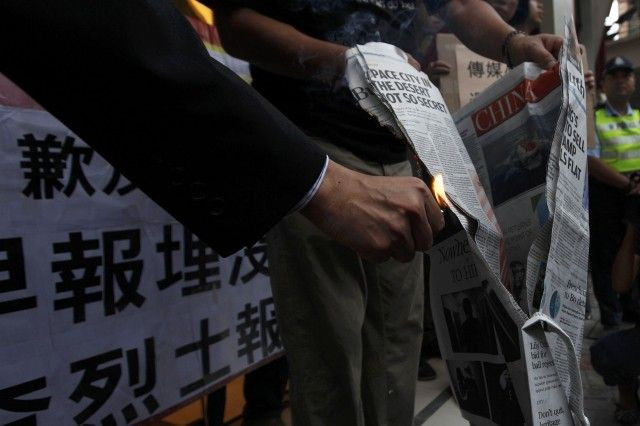
Indeed, some still see online media as providing a new alternative for Chinese journalists. Despite controls, “there’s a lot of space online,” says a former state media editor who is about to launch an online video chat show, hosted by a private web operator, in which he will discuss business issues. Such “self-media” have become increasingly popular outlets for Chinese media veterans frustrated with the limits of working in the mainstream media. Several former editors are now using this means of reaching an audience – as are pop star turned popular current affairs pundit Gao Xiaosong, and economist Wu Xiaobo.
“It gives them a platform as an independent intellectual,” says a TV professional. “They can talk about the economy or current affairs. And they’re smart – they may not talk about official policy directly, but people who know about these things will understand what they’re saying.
Certainly there is still money flowing into online ventures, including a new online news channel and app with the bold name of ‘Wu Jie’ or ‘No Frontiers.’ It’s been set up by staff of Caijing magazine, with investment from Jack Ma, the billionaire founder of Chinese e-commerce giant Alibaba. Observers says it’s aiming to compete with The Paper, an online news platform launched by Shanghai’s official newspaper group last year, which is edited by younger journalists and focuses on social, economic and cultural stories – including local government abuses and miscarriages of justice. “This is the contemporary equivalent of the old Southern Weekly,” says one journalist, optimistically, suggesting that The Paper’s relatively small elite audience of intellectuals means the government will give it greater leeway than mainstream media like state broadcaster CCTV.
Alibaba’s Ma has also invested nearly $200 million in China Business News, a Shanghai-based group which operates a TV station, magazine and newspaper targeting the country’s business community. Some observers believe this is just the beginning of greater commercial investment in China’s media, which would boost its financial strength. And there’s no question that the government still sees the media, and Internet, as an area of economic growth – last year President Xi called on the country’s main state media groups, such as the People’s Daily and Xinhua News Agency, to invest in building up their online presence.
At the same time, the growing development of official media online is seen by some as a way of consolidating official control on information, in an era where the Internet has brought a much greater diversity of voices to Chinese readers. And the young financial journalist believes that if self-media and other new social media platforms – such as closed members’ groups on social media site WeChat, which have become a popular way for journalists to share information – continue to develop, more controls are likely to follow.
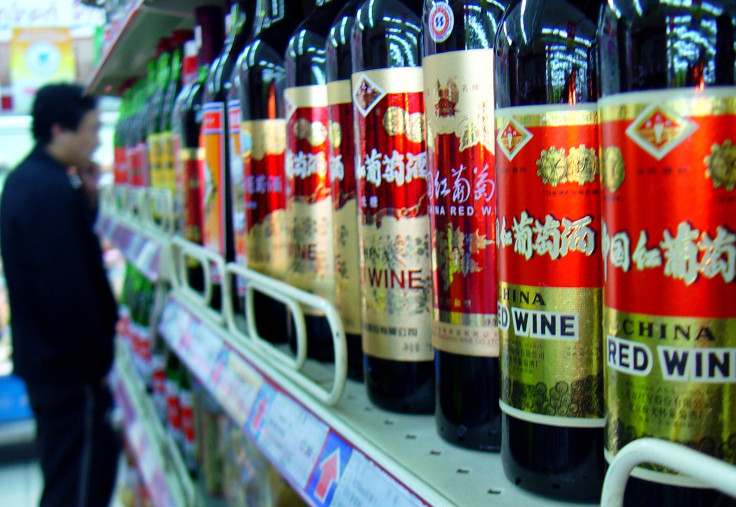
“At the moment there’s not so much direct censorship,” he says. “But if in two or three years’ time there are lots of new media companies and websites doing this, then I’m sure they’ll control it.”
Concerns have also been raised at the government’s announcement late last month that all regions must set up new “Journalistic ethics committees” – the official Xinhua News Agency said their duties would involve “poring over journalists’ work, and naming and shaming those guilty of misconduct.”
Willy Lam of the Chinese University of Hong Kong says with the government grappling with a slowing economy, the last thing it wants is aggressive media scrutiny.
“The top priority now is to maintain steady growth, so we may see less market liberalization than they promised a couple of years ago,” he says. “Like the recent package on state enterprise reforms [announced last month] was seen by many as a disappointment -- so the leadership don’t want too many critical voices coming from the media now.”
Despite the deepening challenges, though, some Chinese journalists appear determined to carry on:
“It’s the worst time to be a journalist in China,” says one veteran former media professional, “but I’m surprised how many of my friends still want to carry on fighting!”
“I wish I could be a culture journalist,” sighs the financial reporter, “just dealing with movie companies and celebrities. It would be so much safer – and you’d be respected! But I’ve worked in this field for so long – I can’t quit now!”
© Copyright IBTimes 2024. All rights reserved.






















